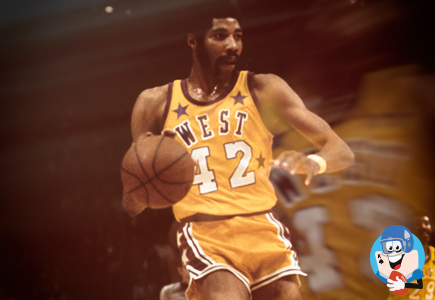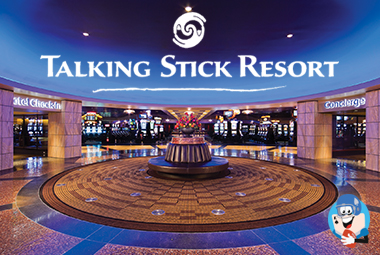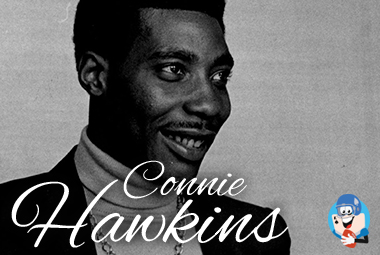
Connie Hawkins, the genial 6-8 former NBA basketball star, is dead.
The poker players in Phoenix, AZ. where the friendly Hawkins spent the final decades of his life are mourning his passing. I was playing Connie's favorite game, Omaha High-Low, the other night when news of his death flashed on a large television monitor at the Talking Stick Casino on Indian Bend Road just east of Scottsdale.

I walked to one of the poker room supervisors and asked her to announce his death. I also requested that she call for a moment of silence to pay tribute to the genial giant as we called him. She promised she would try, but it didn't happen. That's sad. Connie deserved it.
I first met Hawkins about a dozen years ago. He was playing poker at Casino Arizona, also owned by the Indian tribe that operates Talking Stick. One of the poker room supervisors introduced me to him.
Hawkins got out of his chair and shook my hand. His large hand easily dwarfed mine. I could see why he was capable of grabbing those rebounds and score for the Phoenix Suns where he was a basketball legend for so many years.
Naturally, I asked him for an interview. That's the job of a newspaper reporter and magazine writer, to interview as many newsmakers as he can. Connie shook his head.
'I work in public relations for the Phoenix Suns,' he said. 'They might not like the fact that I play poker publicized. But thanks for the request.'
Instead, he gave me an autographed copy of his book, 'Foul!,' which was ghostwritten by Sports Illustrated writer David Wolf.
The book tells the story of Hawkins. It begins with his childhood in Brooklyn, N.Y. where he was born and how he learned to slam-dunk at the age of 11 on the streets of the Big Apple. It tells how he was recruited into college basketball and how he was falsely accused of shaving points, an accusation that kept him out of the NBA for years. Wolf's book helped vindicate him. Maybe all journalists aren't bad.
When he couldn't play in the NBA, Hawkins joined the Harlem Globetrotters and traveled around the world with Abe Saperstein's colorful all-black team of basketball superstars. I attended one of the Globetrotters' games and loved their byplay and hoop antics. They traveled with another team and their weak rivals never won a game.
Hawkins' favorite hobby was poker and during his professional career with the Phoenix Suns, where he averaged 24.6 points and 10.4 rebounds per game, he began playing poker at the casinos around the Phoenix area.
I often played against the Hawk. He was one of the best Omaha High-Low players I ever met. When Connie was in a pot and had something, he won far more hands than he lost.
One night a couple of months after we met, I ran out of money. I left my chair and began leaving the casino. As I passed Hawkins' table, I came up with an idea. I waited until Connie was out of a hand, then I walked over and asked him for enough money for a buy-in.
Connie didn't hesitate. Poker room policy was that he couldn't remove chips from the table, so he reached into his pocket.
'How much do you need?' he said. I told him $40. He handed it to me.
I went back to my table, bought in, and won something like $400. I paid him back that night. He smiled and said, 'That's cool. I like an honest player.'
Hawkins played at Wild Horse Pass and Talking Stick. He could be found almost on a nightly basis playing limit poker at the casinos. He made a lot of friends at the poker tables. The waitresses adored his gentle ways. I don't think he had an enemy in the world.

About a year ago I ran into him at Talking Stick. He seemed to have lost some weight. We talked and he said he had been having some health problems. He didn't go into detail, but I learned he had had colon cancer, a disease diagnosed in 2007.
I told him, 'Connie, you should write another book. Let me be the ghostwriter. Hey, it might even be made into a movie.'
He gave me a tired smile. 'Let me think about it,' he said. Before I left his table, he shook my hand. I still remember the feeling as that big gnarled hand that had provided so much pleasure to basketball fans around the globe made mine disappear.
Connie Hawkins proved that race did not have to be a problem in society. He never complained about his relations with whites and he loved Abe Saperstein for helping him through a rough time in his professional career. I think he would have been disgusted with the NFL players who take a knee during the playing of the National Anthem.
After he was cleared of the point-shaving charges, he filed a lawsuit against the NBA and won an out-of-court settlement for around $1 million. In 1969, the chastised NBA commission lifted the ban and apologized to him.
Connie never claimed racism and he never showed bitterness for being banned. He said it was all part of life and that the problem had been settled.
He was named an NBA all-star for four consecutive seasons. Today his number 42 hangs from the rafters from Talking Stick casino.
On learning of his death, Jerry Colangelo, the former general manager and franchise owner of the Suns, said, 'We lost a legend.'
Author: Geno Lawrenzi Jr.
(Geno Lawrenzi Jr. is an international journalist, magazine author and ghostwriter and poker player who lives in Phoenx, AZ. He has published 2,000 articles in 50 magazines and 125 newspapers. If you want to share a gambling story or book idea with him, send an email to glawrenzi@gmail.com ).





